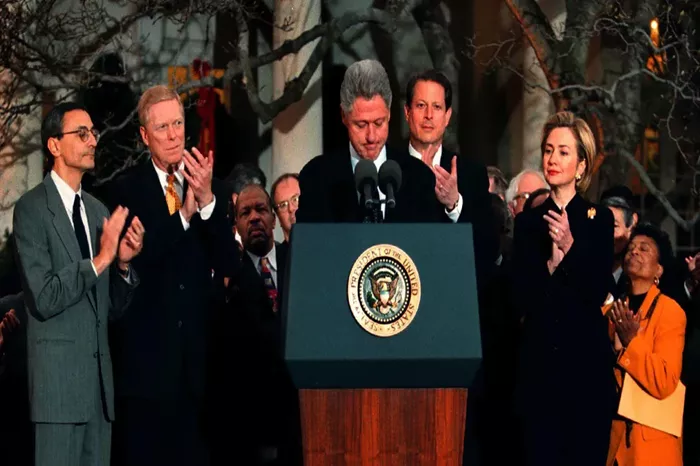Impeachment is a constitutional mechanism designed to remove a sitting president from office. This significant process is enshrined in the United States Constitution to ensure accountability and uphold the rule of law. In this article, we will delve into the intricate details of what happens when a president is impeached, including the impeachment process, historical precedents, and the aftermath of impeachment.
The Impeachment Process
The Constitutional Basis
The U.S. Constitution provides the legal framework for impeachment in Article II, Section 4, which states, “The President, Vice President, and all civil officers of the United States, shall be removed from office on impeachment for, and conviction of, treason, bribery, or other high crimes and misdemeanors.”
Initiation in the House of Representatives
Impeachment begins in the House of Representatives. Any member can propose an impeachment inquiry, but it typically starts with a resolution from the House Judiciary Committee or a special committee.
Investigation: The committee investigates the allegations against the president. This can include hearings, subpoenas for documents, and witness testimonies.
Drafting Articles of Impeachment: If the investigation finds sufficient grounds, the committee drafts articles of impeachment, which are essentially charges against the president.
House Vote: The full House votes on the articles of impeachment. A simple majority is required to impeach the president.
Trial in the Senate
Once the House passes the articles of impeachment, the process moves to the Senate, which holds a trial.
Trial Procedure: The Senate trial is presided over by the Chief Justice of the Supreme Court if the president is being tried. Senators act as the jury, and House members serve as prosecutors.
Deliberation and Vote: After hearing evidence and arguments, the Senate deliberates. To convict and remove the president from office, a two-thirds majority vote is required.
Historical Examples of Presidential Impeachment
Andrew Johnson
Andrew Johnson was the first U.S. president to be impeached. In 1868, the House charged him with violating the Tenure of Office Act. The Senate trial resulted in his acquittal by one vote.
Richard Nixon
In 1974, Richard Nixon faced imminent impeachment due to the Watergate scandal. He resigned before the House could vote on the articles of impeachment, making him the only U.S. president to resign from office.
Bill Clinton
Bill Clinton was impeached by the House in 1998 on charges of perjury and obstruction of justice related to the Monica Lewinsky scandal. The Senate acquitted him, allowing him to complete his term.
Donald Trump
Donald Trump was impeached twice. The first impeachment in 2019 was for abuse of power and obstruction of Congress related to his dealings with Ukraine. The second in 2021 was for incitement of insurrection following the Capitol riot. He was acquitted by the Senate both times.
See also: TOP 5 PLACES TO WATCH PRESIDENT DOCUMENTARY
Consequences of Impeachment
Immediate Impact
If a president is impeached by the House, they remain in office until the Senate trial concludes. The impeachment itself can tarnish the president’s reputation and undermine their authority.
Removal from Office
If the Senate convicts the president, they are immediately removed from office. The vice president then assumes the presidency, as outlined in the Presidential Succession Act.
Disqualification from Future Office
The Senate can also vote to disqualify the president from holding any future federal office. This requires a simple majority vote following the conviction.
Legal and Political Ramifications
Even if acquitted, the impeachment process can have lasting legal and political consequences. It may lead to further investigations, damage to the president’s legacy, and a shift in public and political support.
The Role of Public Opinion
Influence on Congress
Public opinion plays a crucial role in the impeachment process. Lawmakers often consider their constituents’ views when deciding whether to support or oppose impeachment.
Media and Public Perception
The media coverage of impeachment proceedings can shape public perception and influence the political climate. A polarized media landscape can result in varying narratives and interpretations of the events leading to impeachment.
Comparison to Other Countries
Parliamentary Systems
In parliamentary systems, the process of removing a leader is often less formal than impeachment. A vote of no confidence can oust a prime minister without the need for a trial.
Presidential Systems
Other presidential systems have their mechanisms for removing a president, which may or may not involve a legislative trial similar to the U.S. impeachment process.
The Broader Implications of Impeachment
Constitutional Checks and Balances
Impeachment serves as a critical check on presidential power, reinforcing the principle of checks and balances within the U.S. government. It ensures that no individual is above the law.
Impact on Governance
The impeachment process can disrupt governance, leading to a focus on political survival rather than policy-making. It can also exacerbate partisan divisions and hinder bipartisan cooperation.
Conclusion
Impeachment is a profound and complex process with significant legal, political, and social ramifications. It is a testament to the strength of the U.S. Constitution and the enduring principles of accountability and rule of law. Understanding the intricacies of impeachment helps illuminate the mechanisms of democracy and the importance of maintaining ethical standards in the highest office of the land.
Related topics:
WHEN DOES HANNAH DIE IN DESIGNATED SURVIVOR?
WHO IS LEO’S FATHER ON DESIGNATED SURVIVOR?
DID AGENT WELLS DIE IN DESIGNATED SURVIVOR?

